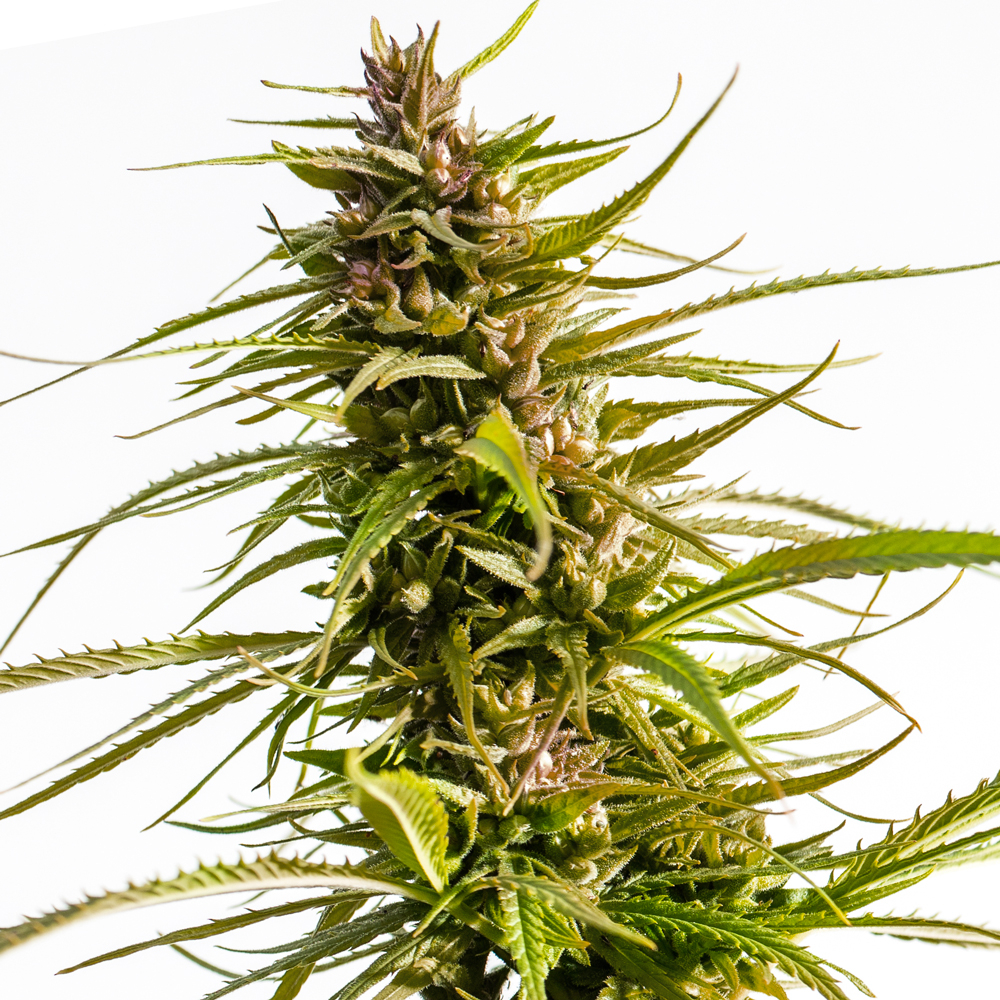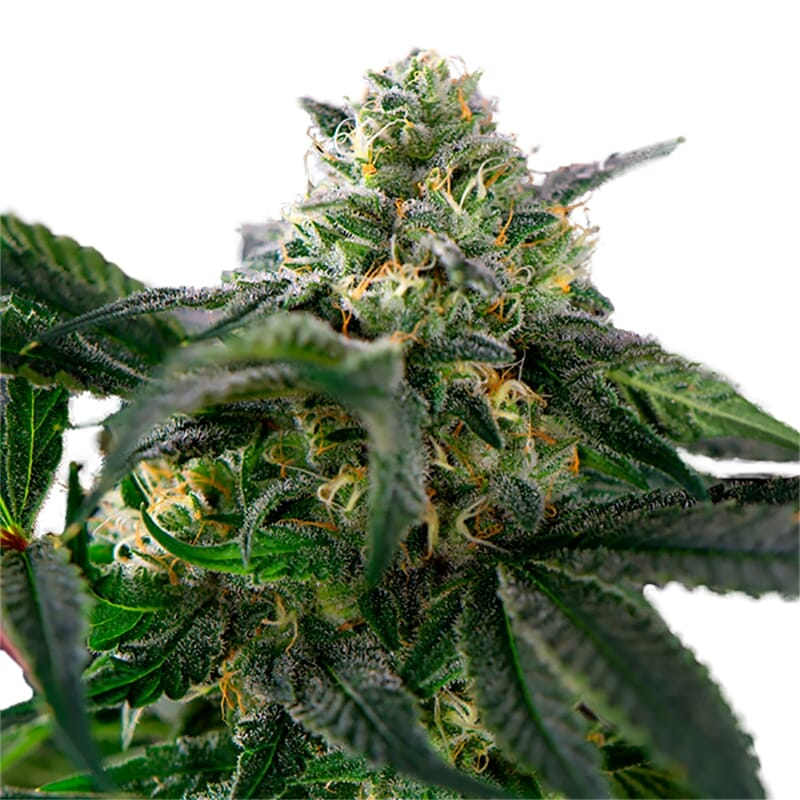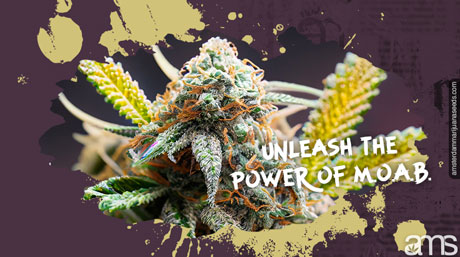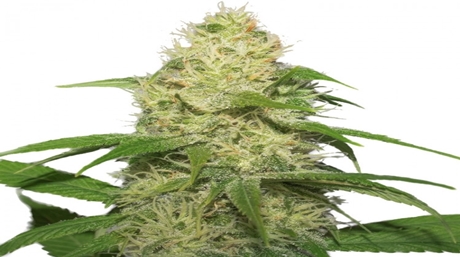Choosing Cannabis Strains: Tips for Successful Cultivation
In this article, you will find answers to the following questions: how do I choose marijuana strains? what are some cannabis cultivation tips? where can I find a strain selection guide? which strains are the best for cultivation? how do I set cultivation goals? what is the importance of understanding cannabis genetics? what are the differences between indoor and outdoor strains?, what should I consider when it comes to strain yield?
In the sprawling world of cannabis cultivation, the vast range of strains available is genuinely mind-boggling. Whether you’ve just decided to buy marijuana seeds for the first time, or you’re a seasoned grower contemplating your next strain, understanding the factors to consider when choosing cannabis strains is a critical step. This guide provides a comprehensive outline of the key considerations to keep in mind, ensuring you make informed decisions about your growing endeavors.
We start with a fundamental yet often overlooked step: understanding your cultivation goals. Ask yourself, what do you aim to achieve with your cannabis growing? Are you aiming for high yields, specific flavors, or a particular type of effect? Answering these questions is central to the process of strain selection. It’s why we consider “cultivation goal setting” an essential part of choosing the right seeds.
For instance, you may decide to purchase marijuana seeds, to cultivate strains rich in CBD for their potential health benefits. Alternatively, if you’re interested in the recreational aspect, your focus might be on strains with high THC content. Your cultivation goals will influence not only which cannabis strains you buy but also how you approach the entire weed growing process.
Next on the list of cannabis cultivation tips is /blog/amsterdam-cannabis-genetics-2/understanding mariujana genetics. Just as in any form of agriculture, the genetic makeup of the cannabis strains you choose to plant plays a significant role in the results you achieve. Variations in genetics can result in differences in plant size, growth speed, resistance to diseases, and the quality of the final product. When buying weed seeds, it’s crucial to choose reputable suppliers who provide detailed information about the strain’s genetics.
One central aspect of understanding cannabis genetics is the difference between Indica, Sativa, and Hybrid strains. Indica weed strains, known for their physical sedating effects, typically grow shorter and bushier and have a faster flowering time, making them suitable for indoor cultivation. In contrast, Sativa cannabis strains, associated with uplifting cerebral effects, tend to be taller and have a longer flowering period, making them better suited for outdoor cultivation. Hybrid strains offer a combination of both Indica and Sativa traits, allowing growers to benefit from the best characteristics. For marijuana seeds that promote impressive plant growth, you can visit our Marijuana Seeds For Tall Plants page.
This brings us to our next point: deciding between indoor vs outdoor strains. When choosing cannabis strains, consider the growing conditions you can provide. Indoor growing provides controlled conditions, making it ideal for strains that require specific light, temperature, or humidity levels. Outdoor growing is generally cheaper and can produce more substantial yields, but the strains must be hardy and adaptable to your local climate. Therefore, understanding cannabis genetics is vital to select the best strains for cultivation in your specific environment.
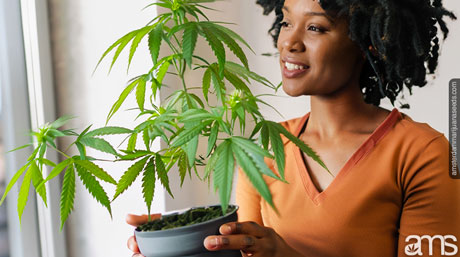
Next up in our weed cultivation tips is considering strain yield. Yield refers to the amount of weed you can harvest from a plant. When you buy cannabis seeds, pay attention to the estimated yield. However, keep in mind that these are estimates and can be influenced by the growing conditions. Yield is an important consideration, especially for commercial growers, as it directly affects profitability.
It’s not just about how much you can grow, but also the quality of the product. This is where we delve into the world of grower’s strain considerations. The best strains for cultivation are those that not only meet your yield and growth environment requirements but also produce a high-quality product. This includes factors such as potency, flavor, and aroma. These elements are influenced by the strain’s genetics and growing conditions.
Last but certainly not least, is understanding the importance of cannabis growth conditions. Even the best strains for cultivation won’t thrive if their specific growth conditions are not met. This includes factors such as light, temperature, water, nutrients, and pH levels. It’s also worth considering whether you’ll be growing in soil or using a hydroponic system, as this can influence the choice of strains.
In the end, the most crucial factor in choosing the right strain for your cultivation goals is knowledge. Educate yourself about cannabis genetics, growth conditions, and your specific goals for your growing journey. Take your time, plan, your research before you buy weed seeds, and always aim to improve your growing skills. Remember, the world of cannabis cultivation is full of surprises and challenges, but also great rewards.
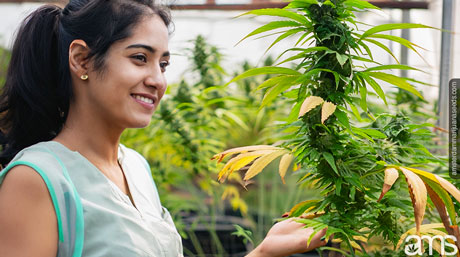
Focusing on the complexity of choosing cannabis strains and delving deeper into the art of weed growing. Remember, we are on this journey together, and my aim, is to provide you with invaluable insights to aid you in achieving your cultivation goals.
Whether you’re just starting to dip your toes into the world of cannabis growing or you’re a seasoned cultivator, your mission should always be to improve and refine your cultivation techniques. This ties back to our point about cultivation goal setting. Are you growing for personal use, or are you aiming to become a commercial producer? Answering this question is crucial as it directly influences the type of cannabis strains you should buy.
For example, if you’re growing marijuana for personal use, your top priority may be the strain’s taste and effect. In this case, a strain like the Purple Haze, known for its sweet, earthy flavors and uplifting effects, may be an excellent choice. Conversely, if your goal is commercial cultivation, you’ll likely be more concerned about yield and growth speed. You might want to consider a strain like Critical Mass, renowned for its high yield and quick flowering time.
Now, the concept of strain selection can be daunting, given the plethora of cannabis strains available on the market. When you’re choosing cannabis strains, it’s crucial to consider the source of your seeds. Buying weed seeds from a reputable source ensures that you’re getting what you’re paying for. This is why understanding marijuana genetics and the breeder’s reputation is key to making a wise decision.
From my personal experience in cannabis growing, I’ve found that each strain has its unique “personality.” For example, the Amnesia Haze strain has a reputation for being a bit difficult to grow, especially for beginners. It requires very specific growing conditions, including a warm, sunny climate and a carefully balanced nutrient mix. On the other hand, strains like the Northern Lights are known to be more forgiving and versatile, making them suitable for beginners. Understanding these nuances is vital when choosing cannabis strains.
One of the most fundamental cannabis cultivation tips I can give is to educate yourself about the specific needs of your chosen strain. This involves a deep dive into the world of cannabis growth conditions. A key element of weed growing is the delicate balance of light, temperature, humidity, and nutrients. These factors, collectively known as the growing environment, play a significant role in the success of your crop.
Take, for instance, a classic strain like Blue Dream. It is beloved for its balanced full-body relaxation and cerebral inv igoration. Blue Dream prefers a Mediterranean-like climate and requires careful attention to nutrient feeding, but rewards the grower with a high yield.
On the other hand, when it comes to indoor vs outdoor strains, it’s important to consider your available resources and constraints. Indoor cultivation provides you with control over the growth conditions but can be more costly due to the need for lighting, ventilation systems, and more. Outdoor growing is less predictable, as it relies heavily on natural conditions. However, it can also yield more bountiful harvests if the strains chosen are suited to the local climate and conditions. A strain like Durban Poison, for instance, thrives in sunny, outdoor environments and could be an excellent choice for outdoor growers.
Let’s now shift our focus to strain yield considerations. Your chosen strain’s potential yield should align with your cultivation goals. When choosing cannabis strains for commercial cultivation, strains known for their high yield are your best bet. Strains like Big Bud and OG Kush are known in the cannabis growing community, for their impressive yields.
Growing marijuana is an art, a science, and a labor of love.
It involves a deep understanding of cannabis genetics, meticulous care in maintaining the right growth conditions, and strategic planning to align with your cultivation goals. Whether you’re a novice grower buying marijuana seeds for the first time or a seasoned cultivator exploring new strains, keeping these considerations in mind will help you choose the right strains for your cultivation goals. And remember, every new growth cycle is an opportunity to learn and refine your cannabis growing techniques.
As we delve further into the complex world of cannabis growing, it’s essential to reiterate the importance of making informed decisions when you buy weed seeds. These decisions have a significant impact on the success of your cultivation endeavors, be it for personal or commercial purposes.
Medicinal properties of the strains
Another pivotal factor when choosing cannabis strains is considering the medicinal properties of the strains. If your goal is medicinal marijuana cultivation, focusing on CBD-rich cannabis seeds is the way to go. Strains such as Charlotte’s Web or ACDC, known for their high CBD and low THC content, could be a fantastic choice for those looking to leverage the potential health benefits of cannabis without the psychoactive effects.
It’s important to remember that, similar to other plants, cannabis is subject to diseases and pests. Different strains have varying levels of resistance to these threats, which is another key aspect of understanding marijuana genetics. For instance, some cannabis strains are bred to resist mold and mildew, like the Super Silver Haze strain. Grower’s strain considerations like these are vital to ensure a healthy, thriving crop.
Moreover, your growing marijuana experience can also be influenced by the length of the strain’s flowering period. In the realm of cannabis cultivation, time is money, particularly for commercial growers. Strains with short flowering times allow for more harvests within the same timeframe. The Indica-dominant strain, Afghan Kush, for instance, has a relatively short flowering time of about 7-8 weeks.
As we dive deeper into cannabis cultivation tips, let’s talk about something that’s often overlooked by novice growers: plant training techniques. Techniques like Low-Stress Training (LST), High-Stress Training (HST), Screen of Green (SCROG), and Sea of Green (SOG) can significantly improve the yield and overall health of your plants. They work by exposing more of the plant’s surface area to light, leading to more vigorous growth.
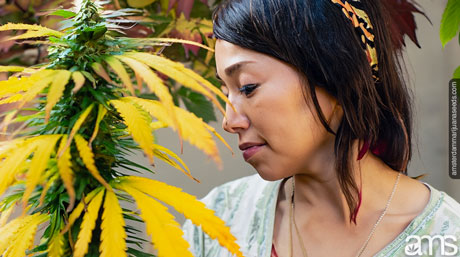
Indoor vs outdoor cannabis strains have different preferences when it comes to their growing environment. As mentioned earlier, choosing between indoor and outdoor cultivation depends on the resources at your disposal and the specific needs of the strains you’re growing.
For example, growing marijuana outdoors often results in larger plants, as the plants have more room to stretch out and grow. Strains like the Sativa-dominant Amnesia Trance are well-suited for outdoor cultivation, given their preference for plenty of sunshine and their resilience to environmental changes.
On the other hand, indoor growing offers a higher degree of control over the environment. This control can lead to a more consistent, high-quality product but also requires a more hands-on approach. The Indica-dominant strain, White Widow, is known to thrive in indoor environments, making it a popular choice for indoor cultivators.
A deep understanding of cannabis growth conditions is necessary to successfully grow marijuana, whether indoors or outdoors. Ensuring that your plants have the correct balance of light, temperature, humidity, and nutrients can make the difference between a bountiful harvest and a disappointing yield.
Finally, never underestimate the importance of patience and continual learning in the world of cannabis cultivation. Growing marijuana is a journey that requires a lot of trial and error. But remember, each challenge presents an opportunity to learn and grow as a cultivator.
When you buy cannabis strains and start your growing journey, you’re not just growing plants; you’re cultivating skills, knowledge, and patience. Keep learning, keep experimenting, and remember to enjoy the process.
Continuing with our exploration of weed growing, we now turn to some advanced tips and techniques that can help fine-tune your cultivation process and further optimize your results. Remember, when you are looking to buy cannabis strains, it is essential to consider not just the strain’s characteristics but also your own, cultivation capabilities and goals.
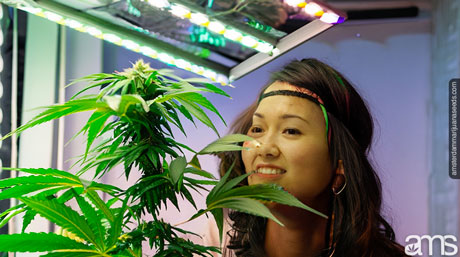
Importance of the vegetative and flowering stages
One of the most critical cannabis cultivation tips I can share is the importance of the vegetative and flowering stages in marijuana growth. Each stage has unique nutrient requirements, and understanding these can significantly impact the health and yield of your plants.
During the vegetative stage, pot plants require high levels of nitrogen and ample amounts of phosphorous and potassium. This stage is all about green, leafy growth and developing a robust plant structure. Strains like the Super Skunk are known for their vigorous vegetative growth, making them a great choice for growers wanting a short growth cycle.
As your plants transition into the flowering stage, the nutrient needs shift. High levels of phosphorous and potassium, along with lower amounts of nitrogen, are needed to support bud development. Strains like the Haze Berry are known for their abundant and flavorful buds when provided with the right nutrients during the flowering stage.
Strain yield considerations
One must also consider strain yield considerations. The yield of a cannabis strain is the weight of the dried flowers that the plant produces. Some strains, like the renowned Critical, are bred specifically for high yield production and can produce an impressive amount of high-quality bud. However, remember that a high-yielding strain also requires careful management and the right growth conditions to achieve its full potential.
Indoor vs outdoor strains
The topic of indoor vs outdoor strains comes up frequently in the context of yield, as the growing environment can significantly influence the yield of a cannabis plant. Indoor growers often use techniques like plant training and specialized lighting schedules to maximize their yield. Growing marijuana outdoors, in contrast, allows the plants to take advantage of natural sunlight and potentially grow into much larger plants, potentially offering a larger yield.
A significant part of marijuana growing involves managing potential threats to your plants, like pests and diseases. Strains differ in their resistance to these challenges, so it’s wise to consider these factors when choosing cannabis strains. For example, the Gorilla Glue strain has a reputation for its resistance to pests, while the Pineapple Express strain is known for its resistance to diseases.
One of the often overlooked cannabis cultivation tips involves the harvest time. The harvest time can significantly influence the effects of your weed. Harvesting earlier can result in a more uplifting effect, while harvesting later can lead to a more relaxing effect. Understanding the desired effects can guide your harvest decisions.
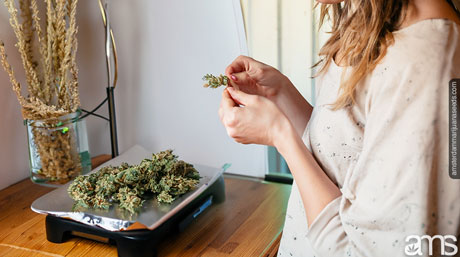
Growing marijuana involves a series of critical decisions
In conclusion, the art of growing marijuana involves a series of critical decisions, starting from the moment you buy cannabis seeds, all the way to harvest. Every step along the way presents opportunities to optimize your results and achieve your cultivation goals. So keep these considerations in mind, continue to expand your understanding of marijuana genetics and growth conditions, and enjoy the rewarding journey that is cannabis cultivation.
In this final section of our comprehensive guide on choosing the right strain for your cultivation goals, we focus on the post-harvest considerations. From curing to storing your cannabis, each step plays a crucial role in preserving the quality and potency of your yield. When you set out to buy cannabis seeds, remember that the journey doesn’t end with harvesting.
Curing your cannabis properly
After harvesting, curing is the next critical step. Curing your cannabis properly can significantly enhance its flavor and potency and also helps to prevent the growth of mold during storage. For strains like the Afgooey, which are known for their unique, complex flavors, proper curing can make all the difference.
When it comes to storing your weed, an airtight container in a cool, dark, and dry place is the best way to maintain its quality over time. Excessive heat and light can degrade cannabinoids and terpenes, leading to a loss in potency and flavor. Therefore, even for the best cannabis strains for cultivation, poor storage can result in an inferior product.
Legal considerations associated with cannabis cultivation
Moreover, you must always bear in mind the legal considerations associated with cannabis cultivation. Legal parameters can vary widely depending on your location, so always ensure you are compliant with local laws and regulations when you set out to buy cannabis seeds or engage in weed growing.
Lastly, always remember that every grower’s journey is unique. Your choice when buying cannabis strains should align with your personal cultivation goals, resources, and preferences. From understanding marijuana genetics to choosing between indoor vs outdoor strains, to considering strain yield considerations, your path in the world of cannabis cultivation will be an exciting journey of learning and discovery.
Now, with a multitude of cannabis cultivation tips at your fingertips, you are better equipped to make informed decisions about your pot growing endeavors. You can navigate the nuances of choosing cannabis strains, understand your grower’s strain considerations, and anticipate the growth conditions required for thriving plants.
In summary, growing marijuana is both a science and an art, full of opportunities for personal growth and exploration. So, take your time, do your research, and make sure you enjoy the process. Whether you are a seasoned grower looking to refine your techniques, or a novice eager to delve into the world of cannabis cultivation, remember that success often comes through trial, error, and, most importantly, patience.
Thank you for joining me on this journey, and I hope this guide has been enlightening and helpful in achieving your cultivation goals.
Good luck, and happy growing!





